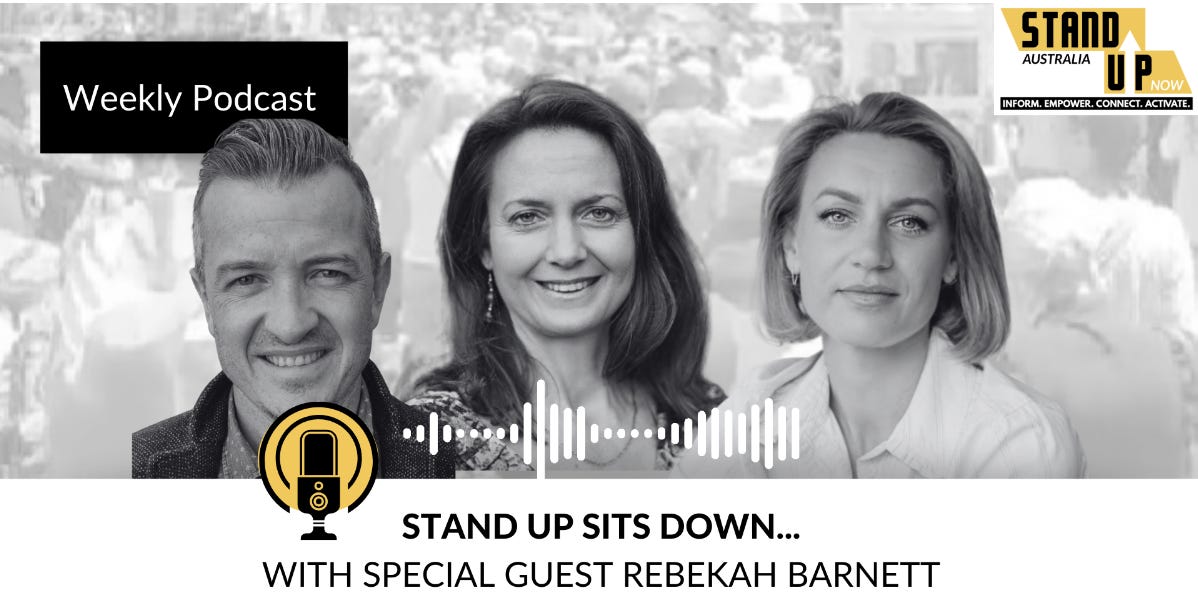For a preview of my kitchen, read on
Media mentions and appearances, with snack access
Last week’s story ‘Landmark Covid vaccine injury win’ about Adelaide youth worker Daniel Shepherd’s important compensation win went fairly viral, with over 360,000 views on X (not bad considering my account is still suppressed) and a further 32,000 views on Substack.
I followed up with a more in-depth interview with Shepherd, who is pleased to have won his case, but still suffers from his post-vaccine pericarditis, which he contracted from his Pfizer booster almost two years ago.
Children’s Health Defense picked up the story and featured comment from me on the Australian regulatory context. From the article, ‘Australian Man Injured by Pfizer Vaccine Wins ‘Landmark’ Claim Against Employer’ (emphasis mine),
“Even though there have been over 1,000 deaths and almost 140,000 adverse events reported to the Therapeutic Goods Administration (TGA) in relation to the COVID vaccines, the TGA maintains that adverse events are rare, that reports are not necessarily causally linked, and that only 14 Australians have died as a result of vaccination.
“Yet, the TGA... admitted that it does not assess all adverse event reports to determine causality, so how can it know the extent of COVID vaccine harm in Australia? It can’t, and it doesn’t.”
You can read more about the TGA’s sorry excuse for a safety surveillance effort here:
Australian writer Paul Collits also covered the story for the Conservative Woman UK. Aside from an amusing reference to the ‘Covid Five’ in the Australian Parliament (Gerard Rennick, with Alex Antic, Matt Canavan, Malcolm Roberts and Ralph Babet) Collits makes a case for persevering with lawfare in the courts. From the article ‘One victory for the covid resistance in Australia could lead to a lot more,’
“The future trajectory of the Shepherd case is uncertain: the Covid State will certainly fight back to hold the terrain it has won. But the mighty Rennick is right – tens of thousands of vaccine-forced and vaccine-injured will be pondering the possibilities….
”The counter-revolution will need to deploy many weapons. The law, might, just might, be one of these weapons. There must be a few judges out there who can see what has been going on these past years. Watch this space.”
I joined Mitch Haworth and Robyn Chuter on the Stand Up podcast to discuss the significance of Daniel Shepherd’s compensation win. Watch the episode here. My interview runs for the first 30 mins.
The episode lasted all of two minutes on YouTube before being removed for breaching the medical misinformation policy. That would be Mitch suggesting that the Covid vaccines may have killed thousands or millions of people. Duh Mitch, should have said they saved a gazillion lives.
As previously pointed out on this blog, YouTube’s medical misinformation rules categorises as misinformation any information that, “contradicts local health authorities’ (LHA’s) or the World Health Organization’s (WHO) guidance about specific health conditions and substances.”
If YouTube had existed over the past 200 years, they would have banned criticisms of blood-letting, thalidomide, lobotomies, and sterilising the mentally ill, all of which were recommended by official health authorities at one point in time. Such clearly flawed policies are driven by flawed research, as covered in the below:
Finally, I joined Chris Smith on TNT radio for a wide-ranging discussion touching on events of the week, including calls for a Royal Commission into Australia’s Covid response, Shepherd’s compensation case, immune imprinting, and the importance of being able to admit when you’re wrong and update your position when you get new information.
Watch here. Cue to 29:30 for an excerpt of Professor Ian Brighthope’s excellent address to the Senate Committee inquiring into the Terms of Reference for a prospective Covid Royal Commission, followed by a preview of my kitchen and discussion (approx 16 mins all up).
To support my work, make a one-off contribution to DDU via my Kofi account and/or subscribe. Thanks!





Great work and developments, Rebekah; you are doing incredibly important work, and I'm sure I speak for many others when I say I am deeply grateful.
Look forward to listening to the interviews.